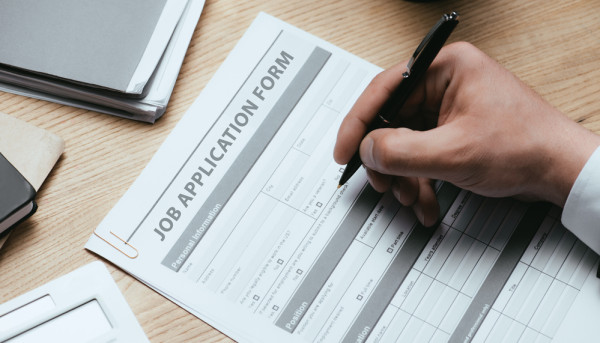Buying a Home - A General Overview

Buying a Home: A General Overview will give you a good idea of what you will need to do before you start looking for a home. From getting preapproved to touring homes in your price range, there are many important things to take into account when you are planning to buy a home. If you are not prepared to buy a home, you could end up disappointed.
Preparation for buying a home
Buying a home is a big decision, and it pays to do your research. You'll want to take into account your lifestyle and your budget. Here are some tips to get you started.
Preparation for buying a home should begin at least six months before you plan to buy. This is a good time to start saving for a down payment and reserve money. Also, you'll want to make sure you have a good real estate agent.
A good real estate agent will help you navigate the process, and find a home that is a good fit for you. You'll also want to know what to expect during the home buying process, including what to expect in a real estate contract.
A good real estate agent will also be able to save you money by pointing you in the right direction, or helping you find a home that is a better match. You'll also want to be ready to act quickly when you find a good deal.
The home buying process can be stressful and time consuming. If you plan ahead, you'll find that the process is not so overwhelming. This is especially true if you're considering buying a home for the first time. Buying a home can be a great investment, but you'll want to make sure you are financially prepared.
The real estate market has seen several good years. However, as prices rise and inventory is scarce, you'll want to be extra vigilant in your quest to find a suitable home. You'll also want to make sure you have a good insurance plan. You may also want to consider getting a home inspection. You'll want to know if there are any defects in the home, and what repairs will need to be done before you close.
Getting preapproved and prequalified
Getting preapproved and prequalified when buying a home is a must for home buyers. This gives you an idea of how much you can afford and lets you know what mortgage options are available to you. With preapproval, you can focus your search on houses in your price range and make offers quickly. If you're not serious about buying a home right away, getting prequalified will give you a sense of what you can afford and help you plan your search.
The lender who is prequalifying you will review your financial information. They will ask you for things like income sources, your employment history, and your credit score. This information will be used to determine the loan amount that you qualify for.
If your lender determines that you are qualified for a mortgage, you will receive an official letter from the lender. The lender will then tell you the estimated interest rate and the amount that you are eligible to borrow. This letter is important because it shows the seller that you are a serious buyer.
In the competitive housing market, a preapproved buyer will get more attention from the seller's agent. The seller will often negotiate with the preapproved buyer. If you are denied preapproval, you can still improve your financial situation. You can do this by paying your bills on time, saving more money, or paying off debt.
You should begin a home-buying plan months in advance of buying a home. This will help you improve your credit score and increase your chances of getting the mortgage you want. You may also want to check out websites like Credit Karma, which provides free credit advice.
Touring homes in your price range
Buying a home is one of life's biggest financial decisions. The key to a smooth transaction is to work with a savvy real estate agent. This entails choosing the right property, the right location and a smart budget. However, you're not limited to one agent. A real estate broker is more than willing to help you find the house of your dreams.
While you're at it, you might want to consider a tour of the town, especially if you're a first-time homebuyer. This will give you an idea of the amenities and amenities in the area you're considering moving to. This will also give you a leg up when it comes to making an offer.
While touring a home is a fun and entertaining experience, there are also pitfalls to be avoided. For example, you don't want to find yourself negotiating a price that's just too steep. You also don't want to be stuck with a home you're not sure you love.
One way to make your tour of the town more efficient is to compile a list of must-haves before you go. The following tips will help you narrow your list to the properties that matter. This will make the process a lot smoother and less tense.
A preapproval letter from a lender is also a big plus. This way, you'll know exactly what you're able to spend on a home. It's also a good idea to have a clear idea of what your price range is, as well as what you're willing to pay. After all, the house that you're considering buying is likely to be your forever home.
Preparing for the formal closing meeting
Buying a home is a significant financial transaction. Before you make your final decision, you should carefully read the purchase contract and know what to expect at the closing. You can also ask your real estate agent for more detailed information.
The closing process takes place in the office of a title or escrow agent. During this meeting, you'll be asked to sign many documents. These documents may be as long as 50 or more pages.
Before you attend the closing, you may want to prepare by doing a home inspection. This will provide you with information about any problems with the home. You should also verify that the seller has completed the repairs that were promised.
You'll also want to make sure that you've signed any required documents. For example, you might want to prepare a list of keys and keypad codes. You'll also need to bring garage door openers.
The closing process can be a bit stressful for home buyers. During the closing, you'll be signing a lot of paperwork, so it's important to be thorough. This can help you avoid making costly mistakes.
It's also a good idea to let all of your creditors and suppliers know about the change in ownership. You should also let your current home's current utility companies know about the change.
You should also ensure that you've properly transferred any leases. You may also want to notify your mail forwarding service, subscription services, and any other important people about the change in ownership.
If you don't want to pay for closing costs via wire transfer, you'll need to bring a cashier's check or other form of payment.











